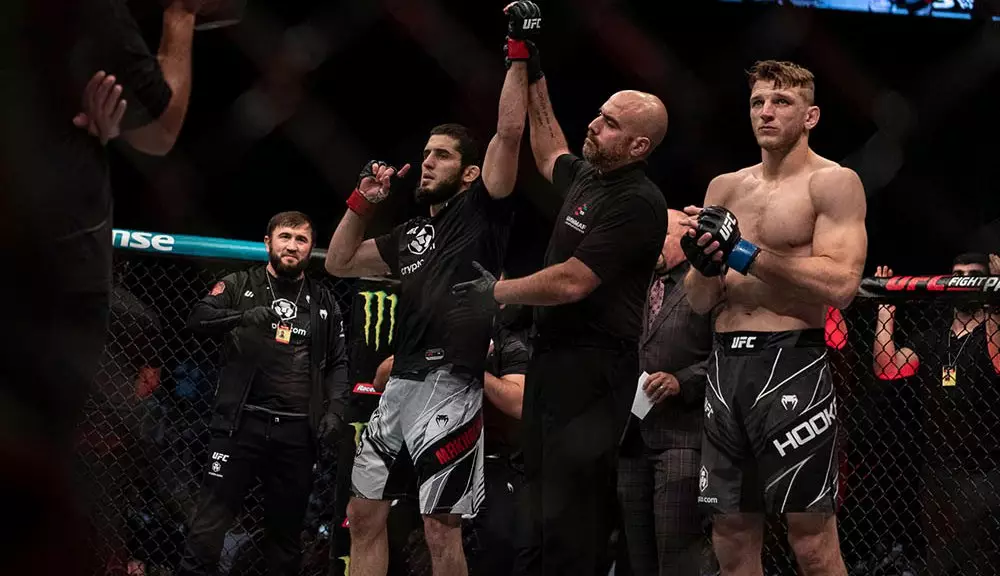Mixed martial arts (MMA) is not just a physical contest; it is also a mental battlefield where the psyche plays a crucial role in the outcomes of fights. Dan Hooker, a seasoned fighter in the UFC, highlighted an important aspect in his reflections on competitors like Islam Makhachev and Khabib Nurmagomedov. He argues that opponents often enter the octagon already defeated mentally, influenced by the fighters’ reputations and the myths surrounding them. This conversation allows us to delve deeper into how mental preparation—and, conversely, intimidation—affects performance in high-stakes bouts.
Hooker’s experience reveals a significant truth about the aura that fighters like Makhachev and Nurmagomedov cultivate. As mentioned in his interviews, these athletes often benefit from a halo effect that amplifies their presence in the cage. For instance, when Hooker faced Makhachev at UFC 267, he described feeling the weight of the expectations that came with Makhachev’s reputation. This “myth” surrounding elite fighters inflates their perceived abilities, making the task seem insurmountable before the first punch is thrown.
This phenomenon can greatly hinder a fighter’s performance; the mental preparation may be overshadowed by paralyzing fear. A fighter who is overly concerned about the opponent’s record or previous performances risks getting trapped in a cycle of doubt, which ultimately influences their tactical decisions during the fight. Thus, self-belief becomes essential in overcoming these emotional barriers that could lead to defeat before the competition even begins.
When Hooker discusses the importance of reducing Makhachev to a mere opponent rather than an imposing myth, he addresses a crucial strategy in mental conditioning. To maximize one’s chances of victory, fighters must focus on their own skills, strategies, and game plans rather than getting caught up in hyperbolic narratives. By shifting the mindset from that of a victim to one of a competitor, fighters can find clarity and strength to face their adversaries head-on.
Additionally, the rematch between Makhachev and Arman Tsarukyan brings the discussion to the forefront. Hooker’s insights suggest that the preparation surrounding their second fight will be even more pivotal. A rematch can serve as a psychological tool where both fighters will attempt to rectify their previous encounters. If Makhachev has genuinely improved and studied Tsarukyan’s weaknesses, it could lead to a more decisive outcome, reinforcing the importance of preparation over intimidation.
Ultimately, Dan Hooker’s reflections remind us that while physical skills and training are vital in MMA, the power of the mind should not be underestimated. The mental game plays an influential role in how fights unfold, and recognizing the psychological barriers can provide a decisive edge. As fighters prepare for their matches, embracing both mental fortitude and strategy will determine not only their performance but also their trajectories within the unforgiving world of mixed martial arts. In an arena where every detail counts, mental resilience could be the distinguishing factor between triumph and defeat.

